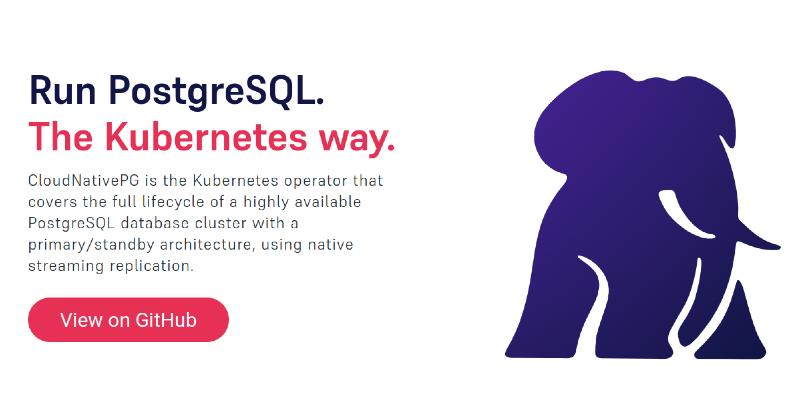CloudNativePG 1.22.2 and 1.21.4 Released!
The CloudNativePG Community is thrilled to unveil the latest update for the CloudNativePG Operator, now available for the supported versions 1.22 and 1.21.
Key enhancements in both supported minor releases are:
- flexibility to configure the
wal_levelGUC in PostgreSQL and disable WAL archiving via an annotation, granting you finer control over your PostgreSQL environment- configurable duration of TLS certificates managed by the operator
- introduction of the
publicationandsubscriptioncommand groups in thecnpgplugin forkubectl, facilitating seamless management of PostgreSQL native logical replication. This unlocks new possibilities for imperative major online upgrades and online imports, enriching your data management strategies.Versions 1.22.2 and 1.21.4 are patch releases that include essential bug fixes, addressing issues such as:
- proper synchronization of PVC group labels to match those on the pods
- check that volume snapshots are ready before initiating recovery procedures, ensuring smoother operations and data integrity
In adherence to Kubernetes best practices, we are transitioning from client-side to server-side application of manifests starting from this release. As a result, the
--server-sideoption is now the preferred choice when installing the operator.We highly recommend updating the operator at your earliest convenience to leverage these enhancements and bug fixes, ensuring a seamless and efficient PostgreSQL experience.
Please refer to the following release notes for comprehensive insights into each version:
We extend our gratitude for your continued support, and we are excited to witness your enhanced experience with the updated CloudNativePG Operator. Thank You.
CloudNativePG versions 1.22.2 and 1.21.4 have been released. As a PostgreSQL Kubernetes Operator, CloudNativePG is responsible for orchestrating the entire life cycle of a PostgreSQL cluster. This includes everything from bootstrapping and configuration to high availability and connection routing, backups, and disaster recovery.

